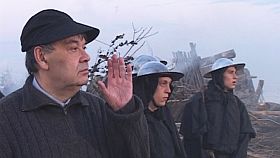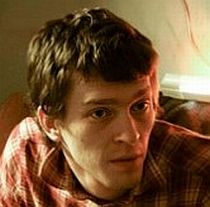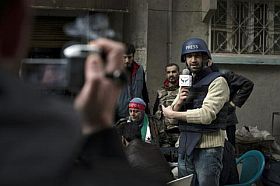


The Mexican Suitcase
You can easily spend some hours at the Parisian Musée d’art et d’histoire du Judaisme with the excellent exhibition of works of the three photo documentarians Capa, Taro and Chim (open until June 30), also called photo journalists, also called war photographers – they are all of it and indeed documentarians as a huge amount of the photos are just as much interpretations as reports on what happened. Here is the introduction taken from the site of the museum:
“The legendary Mexican Suitcase containing Robert Capa’s Spanish Civil War negatives, considered lost since 1939, has recently been rediscovered and is exhibited in Paris for the first time. The Suitcase is in fact three small boxes containing nearly 4,500 negatives, not only by Capa but also by his fellow photojournalists Chim (David Seymour) and Gerda Taro. These negatives span the course of the Spanish Civil War (1936–39), through Chim’s in-depth coverage from 1936 and early 1937, Taro’s intrepid documentation until her death in battle in July 1937, and Capa’s incisive reportage until the last months of the conflict. Additionally, there are several rolls of film by Fred Stein showing mainly portraits of Taro, which after her death became inextricably linked to images of the war itself. Following the end of the war and amid the chaos of the Germans entering Paris in 1940, the negatives were passed from hand to hand for safekeeping, and ultimately ended up in Mexico City, where they resurfaced in 2007…”
Everyday life situations, soldiers at the fronts, corpses, photos from the refugee camp at Montjuic in Barcelona, copies of the magazines where their articles were published, to whom it may concern letters from authorities within the Communist Party in France and elsewhere asking for a good reception of the photographing comrades (under cover names), the famous photo of the fashionable couple Capa and Taro in a café in Montparnasse…
Capa needs no introduction but to see the photos of Gerda Taro is a revelation as well as the ones of David Seymor (“Chim”). The latter died in 1956 in Suez (Capa in 1954 in Vietnam), whereas Taro lived only to become 26 killed in 1937 at the battle of Brunete. She is buried at the Père Lachaise cemetery.
Trisha Ziff has made a documentary film on the Mexican Suitcase, released in 2011, praised for its qualities, can be bought on dvd. I did so at the museum.
http://www.mahj.org/en/3_expositions/expo-The-Mexican-Suitcase-Capa-Taro-Chim.php?niv=2&ssniv=1
http://museum.icp.org/museum/collections/special/chim/chim2.html
http://www.nytimes.com/2007/09/22/arts/design/22taro.html




